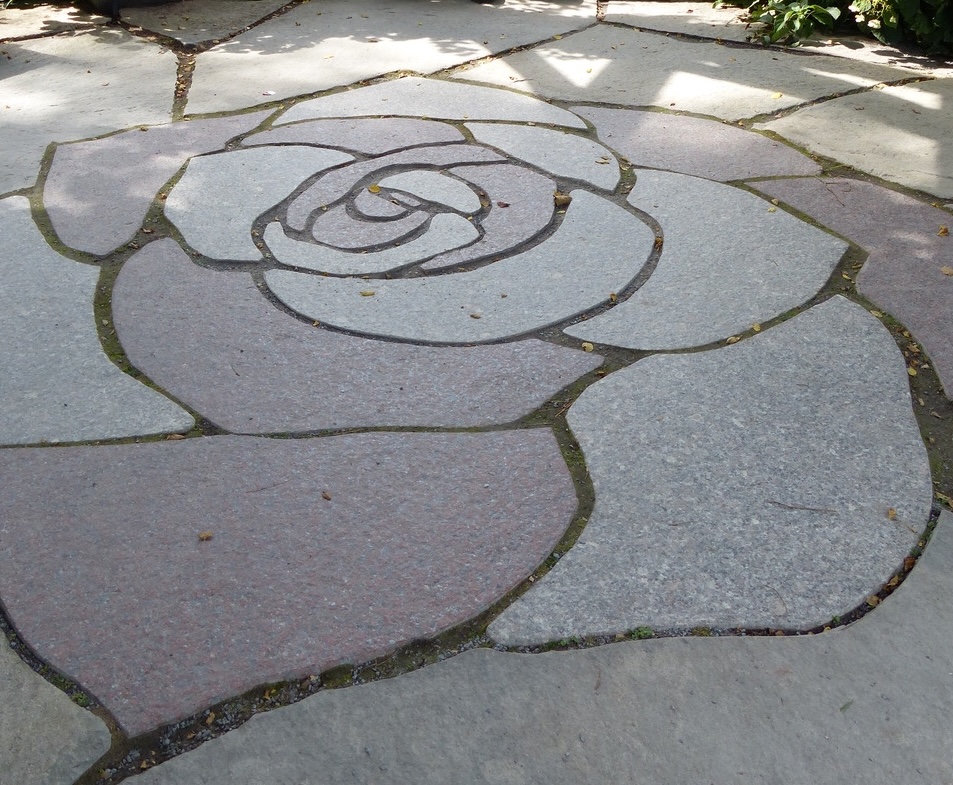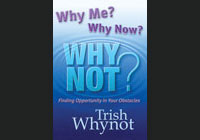Defense is an attack back.
This concept stopped me in my tracks. Who hasn’t defended themselves when feeling attacked? How did it work out? I’ll wager no better for you than it has for me.
work out? I’ll wager no better for you than it has for me.
In our defense we are actually agreeing with what the other person said or with what we think they said, and trying to prove otherwise.
Here’s an example: Sarah was wearing a new pair of pants. Her friend assumed they were very old based on his comment. All she could recall him saying were the words: bell bottoms, 70’s, you still have them? Sarah had no problem remembering her response: “I paid a lot of money for these. The style has come back around.” Can you hear the defensiveness in Sarah’s words? Can you see how she had felt her sense for style attacked and was trying to prove otherwise?
 When she brought the exchange to the table during a session I could have responded with, “Oh, don’t listen to him, he’s clearly not fashion-savvy.” It didn’t matter if he was intentionally hurtful or ignorant at this point. What mattered was that her response spoke the truth about how she felt and I wasn’t going to dismiss that.
When she brought the exchange to the table during a session I could have responded with, “Oh, don’t listen to him, he’s clearly not fashion-savvy.” It didn’t matter if he was intentionally hurtful or ignorant at this point. What mattered was that her response spoke the truth about how she felt and I wasn’t going to dismiss that.
Defense is revealing a wound. When there isn’t a wound we’ve got nothing to prove or defend: we just know and anything to the contrary bounces off of us.
“Defense is an attack back” brings this home.
If someone told me I was an awful waterskier I’d burst out laughing. I was never a pro but I could definitely  hold my own on the water back in the day. I wouldn’t think to take that comment personally. I'd be more apt to think they didn't know me back then or that they forgot.
hold my own on the water back in the day. I wouldn’t think to take that comment personally. I'd be more apt to think they didn't know me back then or that they forgot.
Responding defensively can lead to a fight rather than to a deeper understanding of each other. The fight happens when we defend ourselves and our attack back triggers defense in the other person. Like a game of hot potato, the hurt goes back and forth. In some cases, one of the parties will tire of the fight and drop it. There might be a cold silence for a few days, the issue seemingly forgotten, until the next time it rears its ugly head. In other cases, it becomes a deal breaker. To either of these, there is no resolution: both will lead to more of the same or worse.
During our session we sat with Sarah’s defensive feelings with curiosity and interest. A memory from childhood bubbled up. She saw herself walking home from school in 5th grade. She was wearing a new pair of shoes she felt were a fashion statement, until a neighborhood boy started making fun of them. He would taunt her on her walks home for a good part of that school year. In her defense she had tried to not let it show that it bothered her. In truth, it had hurt a bunch and she had felt unsafe. Sarah was still carrying the pain, anger and shame. “Oh my gosh, I was bullied,” she declared with surprise. Her defensiveness had revealed this wound so we could go in and flush it out. If I had said, “Don’t let it bother you,” the latest experience would have been added to the wound pile.
 There’s even an example of defensiveness in the story of Calvary. One of the many things I admire about Jesus is his unwavering faith and trust in Love. It is put to the test in this story. When facing crucifixion, the priests and leaders challenged him: prove that you’re the messiah by performing a miracle, save yourself if you’re the chosen one. He could have but he did not. He had nothing to prove or defend. Jesus stood in the truth of who he was.
There’s even an example of defensiveness in the story of Calvary. One of the many things I admire about Jesus is his unwavering faith and trust in Love. It is put to the test in this story. When facing crucifixion, the priests and leaders challenged him: prove that you’re the messiah by performing a miracle, save yourself if you’re the chosen one. He could have but he did not. He had nothing to prove or defend. Jesus stood in the truth of who he was.
The priests and leaders were more concerned with protecting their professional status than with Jesus’s life. An innocent man was killed in their effort to defend it. Jesus did not fight back. Rather than defend himself he prayed for his perpetrators because they were not well in their thinking. “Father forgive them; for they know not what they do.” ~Luke 23:34. Jesus broke the cycle. He did what he came here to do: to embody Love.
We’ve all got our crosses to bear. Call it karma if you will. I don't think anyone can say they have never proverbially crucified someone in their effort to defend themselves. Ouch to the ego… right! (I am in no way suggesting you remain in an abusive situation either. Jesus did not have an ego. Don't expect to transcend yours in one fell swoop. Be patient, it could take a lifetime.) I want you to see where you have a choice to either set in motion another karmic round or to break the cycle by stepping off of your position to sit with your feelings when you catch yourself reacting or wanting to react defensively.

It's humbling to revisit defensive behavior. With practice (and likely some coaching) this perspective makes it easy to apologize, forgive others and forgive yourself for wrong-minded thinking. It is easier to learn with the small stuff. Nothing begins as a crisis.
When two people who have been stuck in a defensive cycle are both willing to be humbled by the truth, it deepens intimacy like nothing else. Ask me, I know.
“The holiest of all the spots on earth is where an ancient hatred has become a present love.” ~ACIM
Happy Easter!
Trish















Trish,
Happy Easter. That insight was beautiful and a reminder that I needed.
Hoping to see you soon.
Your friend.
Cindy
Cindy,
Thank you for the Easter greeting and for taking the time to comment.
I'm glad you found this insight helpful!
Happy Easter!
Trish
Happy Easter Cous
You do beautiful work. Thank you for sharing.
Happy Easter Cous!
Thank you and you're welcome! Thanks for commenting.
Trish, your insights send out brilliant lights that help to light ours. Thanks for this one. I am sharing this with a lot of people I know who will be so grateful to you to have their light lit today. xxx
Rosie! You are most welcome. Thank you for commenting and sharing. I'm glad you find this insight as helpful as I do.
Keep on shining brightly!
Trish
Hey Trish,
This story reminds me of a story I heard once regarding this concept.
Person 1: "If someone called you a blue elephant, what would you feel?"
Person 2: "Hmmmm, I don't know, probably nothing."
Person 1: "Why do you think you wouldn't feel anything?"
Person 2: :Uhhhh, because I am not a blue elephant?"
Person 1: "Exactly! That is the point. If someone says something about it you and you don't believe it about yourself, you will easily walk away, because you don't believe it. But, if you believe what they are saying about you, you will react and attack back."
I got myself in a pickle (which you know all about) recently. I started dating someone. When he got angry with me, one of the things he did was refer to me as Satan's daughter or call me Jezebel. I never even flinched when he would call me these names. I would just be confused and basically did an internal eye roll and just wait out his rant. When first called me Jezebel, I mean, I didn't even know who she was, but even after I figured it out, it still didn't ruffle my feathers, because I know that's not who I am.
But the other thing that I find curious, he would say other things as well, and these other things, I found myself spending all kinds of energy trying to prove him wrong. Things that I knew were not true. Like, "You are crazy!" "You are jealous!" "You always want your way!"
The big mystery to me is still why I stayed. But if I focus on this concept of "defense is an attack back", does that mean I believed all these horrible things he said about me, which is why I kept trying to prove he was wrong? Why didn't I just think, "I cannot be in a relationship with a person that calls me names, to my face....and leave!"
Maybe too much of a blog post comment....but I still find it all fascinating!
Thank you for letting me share!
Hi Audra,
I really like the blue elephant story!
I'm not a crisis counselor but it sounds like you may be desensitized to abuse or that your fear response to danger could be freeze and dissociate or fawn. When you take something personally it's revealing a wound. Some people are addicted to approval. When you don't need approval is when you're most likely to get it. Your energy would be better spent healing the wound that was revealed.
Beyond the scope of this blog but I hope this gives you a few things to think about.
Thank you for sharing.
Be well,
Trish